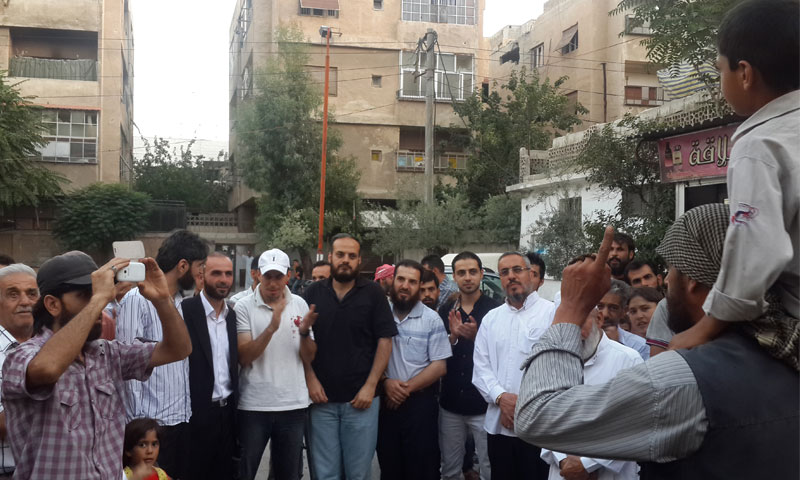
Weddings Under Siege and Bombing… Twenty Weddings in Douma a Week

Enab Baladi – Eastern Al-Ghouta
No sooner does the boom of rockets and missiles that have been falling for hours on the cities and towns of eastern al-Ghouta stop than groups of cars sound their horns announcing the start of a new life for one groom among the young men of al-Ghouta, while elsewhere other lives come to an end. It is a scene much repeated during the five years of the revolution.
The residents of eastern al-Ghouta see no reason to delay weddings because of the daily bombing by the regime. In this report, Enab Baladi presents a sample of the views of residents from Douma, their comments on some of the recent marriages, and how they differ from the period prior to the revolution.
Nasser al-Rahal, a 35 year-old resident of Douma who got married three months ago, says that the daily pressures, whether regime bombing or other pressures, should not influence the decision to marry. He pointed out during his conversation with Enab Baladi, “A while ago I was in a relationship and broke it off for certain reasons, and now I decided to get married. I recommend all young men to marry if they can.”
Twenty Weddings a Week in Douma Alone
The streets of Douma are filled with wedding celebrations around twenty times a week, according to sheikh Hussein Mohammad al-Sattla, who conducted marriage ceremonies before the revolution and continues to do so today. He told Enab Baladi that the number of single men was higher in previous years and that the number of married men has recently increased as dowries have become easier.
The “moqaddam” and “moakkhar”, the immediate and the deferred gift agreed upon during the marriage contract, in Douma are between 100,000 and 150,000 Syrian pounds. Al-Sattla indicated that before the revolution, the amounts were between 50,000-70,000 Syrian pounds, “depending on the agreement.”
While the average age for men used to be between the ages of 25 and 27, this has now gone down. The sheikh confirms that he recently wrote a marriage contract for a young man of 17 who married a girl of 14.
Polygamy: A Widespread Phenomenon in Douma
“I marry between eight and ten people a week and there are others also officiating marriages,” clarified sheikh al-Sattla. He estimated that around 20 people get married each week in Douma and pointed out that there is an increase in polygamy due to “the increase in the number of martyrs’ wives and widows in al-Ghouta, and in Douma specifically.”
Al-Sattla has documented cases of men marrying two or three women and highlighted the existence of disputes between spouses. “We face cases of divorce and material disputes all the time but we send them to the Sharia court and the Civil Records Directorate, and we sometimes intervene to reconcile them.”
Mohammad al-Salahani, aged 45, was married before the revolution and married his second wife last week. He told Enab Baladi that life goes on “as we do not know for how long this situation will continue.” He added, “Marriage is expensive, but before there were many more conditions, while today it is much easier.”
Al-Sattla recounts the story of one of the wedding ceremonies he conducted. The couple in question took an appointment with him five days before the wedding day. The groom’s brother was killed in an aerial strike the following day but, “after five days, including the days of mourning, we conducted the marriage ceremony.”
The Civil Registry in Douma Documents Marriages
To find out the number of marriages conducted in the past few years, Enab Baladi headed to the Civil Records Directorate in Douma city, which documents and registers marriages. Since the beginning of 2016 until 3 December, 1494 marriages were registered with the Directorate. The number has been rising steadily in the last three years. In 2013, the number of registered marriages was 1070, rising to 1310 in 2014, and rising again to 1448 in 2015, according to the Civil Records Directorate.
Manal Salem, a hairdresser in Douma city, said that weddings do not stop even in the most difficult of circumstances. She told Enab Baladi that her business has increased in comparison to before the revolution despite the difficult circumstance and the bad financial situation of most of the residents.
Salem said, “Today, despite the bombing, I receive one or two brides per day and the number increases in spring and summer.”
The people of eastern al-Ghouta see that life will continue regardless of the situation. Salem commented that people may be surprised at al-Ghouta residents’ lives, “They think that our emotions have disappeareed because of what we are going through but it is exactly the opposite. We forget the pain and snatch happiness from under the rubble of our destroyed houses each day.”
if you think the article contain wrong information or you have additional details Send Correction
النسخة العربية من المقال
-
Follow us :

















 A
A
A
A
A
A



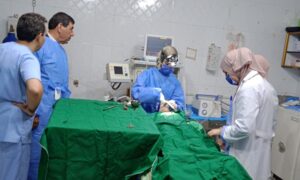
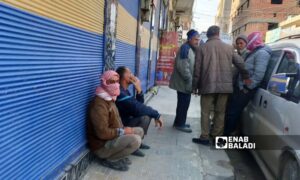
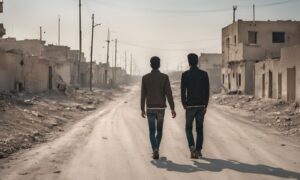
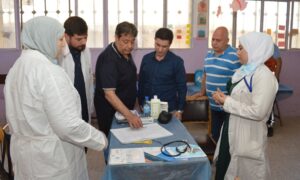
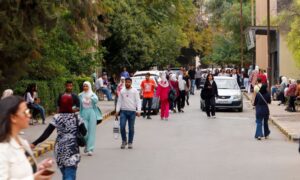
 More Society
More Society